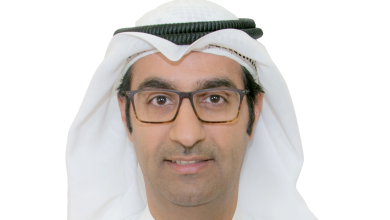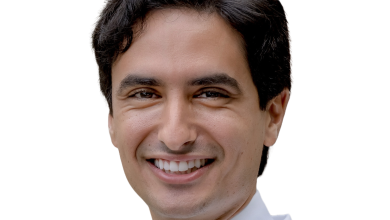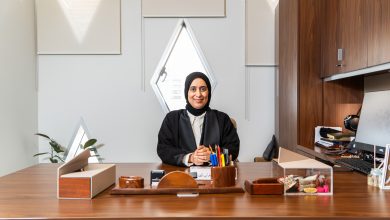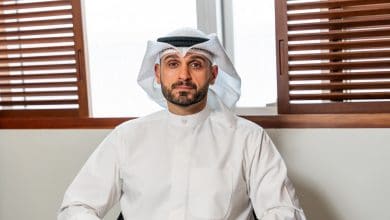From Mechanical Engineering to a Doctorate in Marketing

Many people ask Abdullah Sultan how it is that a mechanical engineer found himself earning a doctorate in marketing. In the beginning of his education, Sultan had actually applied and received scholarships for both fields - but after receiving his bachelor’s in mechanical engineering from University of Missouri-Columbia, Sultan felt the need for a change.
“In the beginning, as an engineer, I didn't know anything about marketing, truly,” Sultan said. “I just read a book about the four Ps: product, price, place, and promotion.” His enthusiasm and potential, however, earned him a spot in a doctoral program. Now, twenty years later, Sultan has more than a doctorate; in 2022, he received the Jaber Al-Ahmad Award for Young Researchers – from the Kuwait Foundation for the Advancement of Sciences (KFAS) – in the field of administrative and economic sciences, in recognition of his exemplary record of published scientific papers.
“I love marketing, you're not dealing with customers only; there are people behind those people,” Sultan said. “As a mechanical engineer, I know how to produce products. But as a marketer, I need to know how to talk to people as consumers and find their life problems to create right solutions for them, so there is a very big overlap between engineering and marketing.”
Sultan’s research into marketing has led him down some fascinating paths - for example, the psychological phenomenon of nostalgia, and how it influences consumer behavior. “Remembering the past can be bittersweet,” Sultan said. “When I was living it - when I was young - it might actually have been a sad situation. But when I remember it now? It’s happy.” These feelings of bittersweet reminiscence can have potent implications for marketing seeking to tap into consumer feelings.
One story of how Sultan first found himself drawn to nostalgia research is, ironically, especially sweet. In 2012, a popular Kuwaiti brand of ice cream decided to change their iconic packaging in an attempt to court international markets. Kuwaiti consumers, however, had developed a deep, longstanding emotional connection to the characters on this packaging - and their disappearance had impacts on the company’s bottom line far beyond what the company likely anticipated.
“I started doing this data collection, and found out that there was a lot of anger associated with their decision,” Sultan said. “Their sales went down, a lot of competitors came into the market, and people shifted to the competitors.” Sultan went so far as to bring his data to the brand managers, to argue that they could at least bring back these beloved characters into the Kuwaiti market. The company did eventually reintroduce the classic packaging - for special occasions - a few years later.
Sultan has also, over the past decade or more, been carefully observing the evolving psychology of social media consumption - consumption that can potentially lapse into outright addiction. Sultan experienced this firsthand when he and his wife first downloaded WhatsApp, in the hopes that it would make them feel more connected to Kuwaiti social life. “We were shifting from not using WhatsApp, to using it every five minutes,” Sultan said. It began to affect their lives.
“In clinical psychology, they define addiction differently - like getting drugs, or smoking cigarettes,” Sultan said. “Addiction to electronics wasn't defined in the literature.” When he first proposed researching WhatsApp to his committee members at Washington State University, in fact, they’d never even heard of the app (its adoption in Kuwait far outpaced its adoption in the United States).
“I published this paper by myself,” Sultan said. “It took a couple of years to get other researchers to cite me. But now, this research has a lot of citations, which makes it a seminal work in WhatsApp addiction.”
Sultan’s social media research has since grown, from his early days of WhatsApp (for example, his 2014 paper, “Addiction to mobile text messaging applications is nothing to ‘lol’ about”), to focus on consumer behaviors on a myriad of other channels (like his 2022 paper, “User engagement and self-disclosure on Snapchat and Instagram: the mediating effects of social media addiction and fear of missing out”). The universe of social media applications provides no small amount of data - especially from young people, for whom the apps have become essential to forging personal connections in the digital era, and who often feel obligated to cultivate an online presence.
“There are some things that you don't want to expose to others, but you disclose everything about your life on social media. And that's very alarming, especially if young people start doing it,” Sultan said. “Because these people maybe don't think of the future consequences of what they've done.” And as much as social media use has become an intrinsic and inescapable part of daily life - and a pillar of every brand’s marketing strategy - Sultan feels that marketers also need to exercise caution.
“I know that social media and marketing are very important for marketers. But, maybe, as a marketer, I also need to think about the customers’ welfare,” Sultan said. “These social media platforms, or the way I use social media and influence my consumers - is this going to be catastrophic for them? Or is it going to be helpful for their life? I would rather be helpful than catastrophic. Because, as a marketer, I need to build a long-term relationship with my customers.”
Now a professor of marketing at Kuwait University, Sultan feels immense gratitude to his family and friends for having supported his academic journey, and to everyone who has worked to make the Jaber al-Ahmad Award possible. “Sheikh Jaber al-Ahmad, may Allah have mercy on him, honored me for my outstanding achievement when I graduated in mechanical engineering with honors in 2000,” Sultan said. “And now I'm honored, again, to receive his award.”
By Jonathan Feakins




